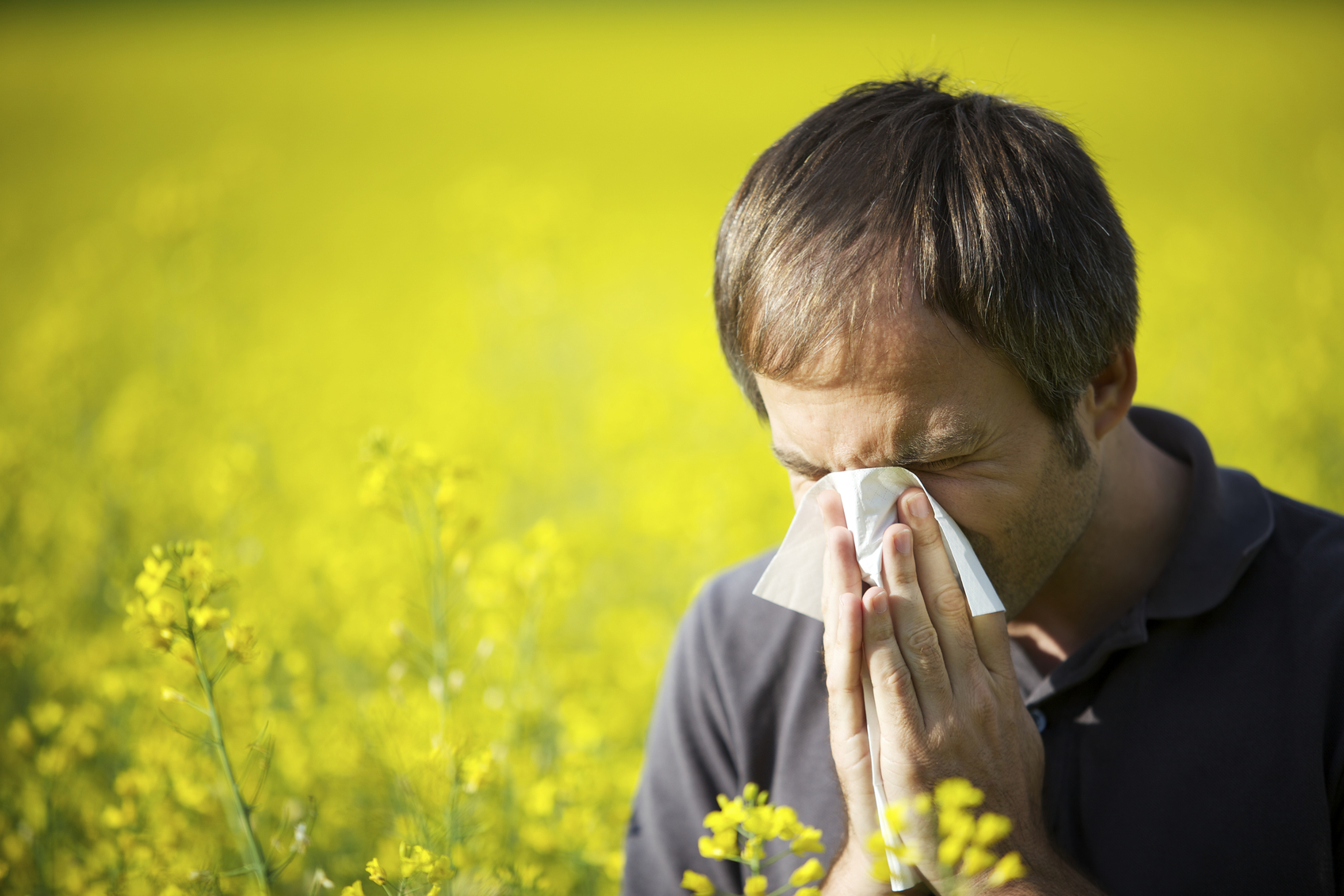
MILLIONS more Britons could start to suffer from hay fever as a result of climate change, a study has suggested.
Around one million people are currently thought to suffer hay fever from ragweed pollen but this figure could rise to more than six million by 2060, the study found.
Researchers from across Europe, led by the University of East Anglia (UEA), estimated that across the continent the number of people who suffer an allergy to the pollen from the weed will increase from 33 million to 77 million over the same time frame.
Climate change will be responsible for two-thirds of this increase, they said.
Previous studies have shown that climate change may increase plant productivity and pollen production. It could also affect the range of allergenic species as well as the timing and length of the pollen season. Climate change may also affect the release and atmospheric dispersion of pollen, experts have said.
The current study, published in the journal Environmental Health Perspectives, examined the potential impacts of climate change on ragweed plant distribution, plant productivity, pollen production and dispersal, and the resulting allergy impacts across Europe.
People who are allergic to ragweed pollen are more likely to experience more severe symptoms through greater ragweed pollen concentrations and a longer pollen season lasting into September and October across much of Europe, they added.
The authors said around 66% of the projected changes are related to climate change but are also as a consequence of the natural dispersal of the plant species across Europe.
Lead researcher Dr Iain Lake, from UEA’s School of Environmental Sciences, said: “Pollen allergy is a major public health problem globally but it has not been known what sort of an impact climate change will have.
“This is the first study to quantify what the consequences of climate change on pollen allergy may be.”
Dr Lake added: “Our research shows that ragweed pollen allergy will become a common health problem across Europe, expanding into areas where it is currently uncommon.
“The problem is likely to increase in countries with an existing ragweed problem, such as in Hungary and the Balkans. But the greatest proportional increases will happen in countries including Germany, Poland and France.
“Higher ragweed pollen concentrations and a longer ragweed pollen season may also increase the severity of symptoms.”
He said that management of the plant could reduce the number of sufferers to around 52 million.
READ MORE
Top tips for dealing with hay fever
Pet hay-fever is not to be sneezed at

Enjoy the convenience of having The Sunday Post delivered as a digital ePaper straight to your smartphone, tablet or computer.
Subscribe for only £5.49 a month and enjoy all the benefits of the printed paper as a digital replica.
Subscribe